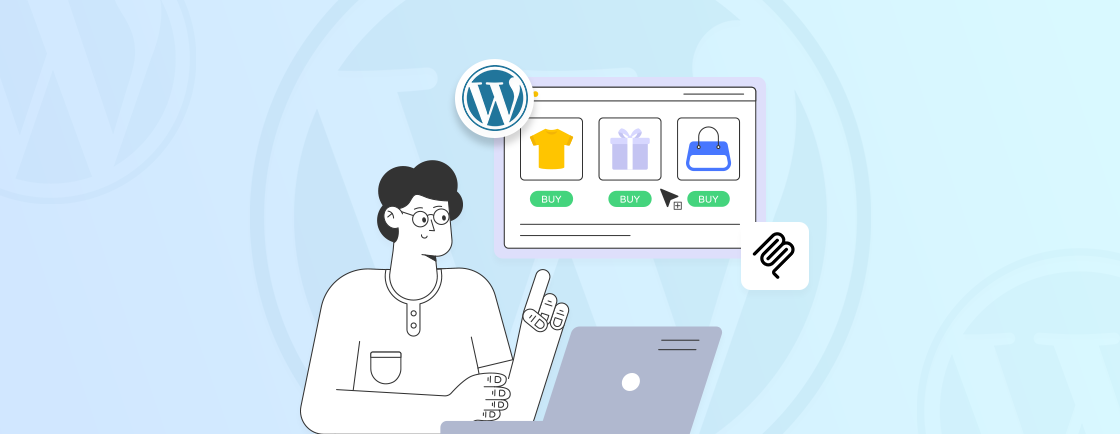Table of Contents
If you run a WordPress site, security should always be a top priority. One of the most common vulnerabilities WordPress sites face is username enumeration.
This occurs when attackers try to discover valid usernames by exploiting the site’s structure. Once they know the usernames, they can launch brute force attacks or phishing attempts, putting your site and its users at risk.
The good news is that username enumeration can be easily prevented with the right strategies. In this blog, we’ll discuss the steps expert WordPress developers follow to stop username enumeration and secure WordPress sites.
What is WordPress Username Enumeration?
WordPress username enumeration is when attackers try to find valid usernames on your WordPress site. By default, WordPress has vulnerabilities that make it easy for anyone to discover usernames. These can be exploited through simple URL manipulation or by abusing the login forms. For example, an attacker can change the number in a URL like this:
http://example.com/?author=1
If an attacker keeps changing the number in the URL, such as author=2, author=3, and so on, they can discover which pages exist. If a page exists, the attacker knows that the number corresponds to a valid username.
You might wonder how much damage a username alone can do? Well, alot. Once attackers know valid usernames, they can use them to launch brute force attacks, attempt social engineering, or exploit password reuse to break into accounts. This makes username enumeration a significant threat to your site’s security.
Impact of WordPress User Enumeration
WordPress user enumeration can have serious impacts on your site’s security. If an attacker knows your username alone, it opens the door to various types of attacks that can put your website and its users at risk.
Brute Force Attacks
Once an attacker knows a valid username, they can attempt to guess the password using brute force. They do it by trying many different password combinations until the correct one is found. With valid usernames, brute force attacks become much easier to execute and more likely to succeed.
Phishing and Social Engineering
With valid usernames, attackers can try to deceive users into revealing their passwords through phishing attacks. They may pose as site administrators or other trusted individuals and trick users into providing their login details.
Password Reuse Exploits
Many people reuse passwords across multiple sites. If an attacker knows a valid username on your WordPress site, they can test the same username and password combination on other platforms. This could potentially give them access to other accounts, including personal or sensitive information.
Increased Attack Surface
Attackers want to find as many usernames as possible. The more usernames an attacker can find, the larger their attack surface becomes. They can focus their efforts on fewer accounts and increase the likelihood of a successful attack, especially if those accounts have weak passwords.
Targeting Admin Accounts
If an attacker discovers an admin username, they can try to access the site’s backend. It will give full control of the website to them. This can lead to data theft, website defacement, or other malicious activities that could damage your site’s reputation or functionality.
In short, username enumeration makes your site more vulnerable to a range of attacks. Preventing this vulnerability is a must to keep your WordPress site secure. Regularly reviewing and managing WordPress User Roles and Permissions can further minimize risks by ensuring only authorized users have administrative access.
How Attackers Enumerate WordPress Users?
Attackers can easily enumerate WordPress users by exploiting certain features and weaknesses in the system. Here are some common methods they use:
1. Author Archive URLs
WordPress automatically creates an archive page for each user. An attacker can manipulate the URL by changing the number in the following format:
http://example.com/?author=1
If the page exists, it reveals that “author=1” corresponds to a valid username. By incrementing the number, attackers can quickly discover other valid usernames.
2. Login Error Messages
WordPress gives different error messages for invalid usernames and incorrect passwords. If a user enters a wrong username or password, WordPress will display a message like “Invalid username” or “Incorrect password”.
An attacker can use this to test different usernames. When they get a “Invalid username” message, they know that the username doesn’t exist. But if they get an “Incorrect password” message, they know the username is valid.
3. XML-RPC API
WordPress has an XML-RPC API, which allows for remote communication. Attackers can use this API to test usernames and gather valid accounts. Though XML-RPC is useful in some cases, attackers can use it to automate username enumeration, making it an easy method for discovering valid users.
4. Login Form Username Guessing
Another method involves attackers trying to guess usernames directly through the WordPress login form. They can test common usernames or try combinations based on publicly available information, such as email addresses or usernames from social media accounts.
5. REST API
WordPress also has a REST API that allows external applications to interact with the site. By sending specific requests to the API, attackers can enumerate users. For example, an attacker can send a request to the following endpoint to check for existing usernames:
http://example.com/wp-json/wp/v2/users
If the site doesn’t have proper security measures in place, this request can return a list of users, including usernames, even without needing to log in. This makes the REST API another potential vulnerability for username enumeration.
Using these simple techniques, attackers can easily gather a list of valid usernames, which they can then target in further attacks.
Ways to Prevent WordPress Username Enumeration
There are many ways you can prevent WordPress username enumeration and secure your site from potential attacks. One effective method is to password protect WordPress to restrict unauthorized access. We’ve made a list of methods you can implement:
Disable Author Archives
One of the easiest ways to prevent username enumeration through author archive URLs is to disable author archives. WordPress allows visitors to view author pages, which can reveal usernames. By turning off these archive pages, you prevent attackers from using the ?author=1 technique.
You can disable this feature by adding the following code to your theme’s functions.php file:
if (is_author()) {
wp_redirect(home_url());
exit;
}
Customize Login Error Messages
WordPress has some default error messages for incorrect usernames or passwords. Changing those messages will prevent attackers from knowing whether a username is valid. This will make it harder for attackers to differentiate between an incorrect username and an incorrect password.
You can add this code to the functions.php file to customize the error message:
function no_wordpress_errors(){
return 'Invalid login details.';
}
add_filter('login_errors', 'no_wordpress_errors');
Limit Login Attempts
Preventing repeated login attempts can help reduce brute force attacks. By limiting login attempts, you can stop attackers from trying many usernames in quick succession. You can use plugins like Limit Login Attempts Reloaded or Wordfence to limit the number of failed login attempts from a specific IP address.
Consider finding your WordPress login URL and changing it to further improve security.
Disable XML-RPC
The XML-RPC API can be used for username enumeration, so if you’re not using it, it’s best to disable XML-RPC. You can add the following code to your functions.php file to disable it:
add_filter('xmlrpc_enabled', '__return_false');
If you need XML-RPC for other purposes, consider limiting access to specific IP addresses or using security plugins to control its usage.
Limit Access to the REST API
The REST API is another potential vector for username enumeration. If your site doesn’t need the REST API, you can disable it. Add this code to your functions.php file:
remove_action('rest_api_init', 'wp_oembed_add_discovery_links');
add_filter('rest_endpoints', function($endpoints){
if (isset($endpoints['/wp/v2/users'])) {
unset($endpoints['/wp/v2/users']);
}
return $endpoints;
});
This will prevent unauthorized users from accessing the user data via the REST API. If you use the REST API for other purposes, you can restrict access to only authorized users.
Use a Security Plugin
Installing a security plugin can help protect your WordPress site from many common vulnerabilities, including username enumeration. Popular plugins like Wordfence can block malicious requests, limit login attempts, and offer additional security measures to stop enumeration attacks.
Use Strong Passwords
Even though this doesn’t directly prevent username enumeration, using strong passwords for all user accounts is always good. Attackers may find your usernames, but they will be unable to access accounts with strong passwords. When you add users in WordPress, make sure to enforce strong password policies to enhance overall site security. Encourage your users to use long, complex passwords, and consider using a password manager along with two-factor authentication.
Monitor Your Site Regularly
Regularly monitor your site for suspicious activity. It will help you spot potential threats early. Set up alerts for failed login attempts or unauthorized access to critical files. Tools like Wordfence can help with monitoring login attempts and provide additional protection.
These strategies will prevent you from WordPress username enumeration. Having strong security makes it harder for attackers to identify valid usernames and protect your site from further threats.
Testing for WordPress Username Enumeration
Once you have all prevention strategies in place, test them to make sure they’re working. Some ways to test for vulnerabilities include:
1. Checking Author Archive URLs
Try accessing author archive pages by adding ?author=1, ?author=2, and so on to your site’s URL (e.g., http://example.com/?author=1). If you’ve disabled author archives, you should be redirected to the homepage or get a 404 error. This ensures that attackers can’t access valid usernames via author pages.
2. Testing Login Error Messages
On the login page, enter an incorrect username and password combination. WordPress should display a generic error message like “Invalid login details” rather than specifying whether the username or password is wrong. This helps to confirm that your custom error message is working.
3. Attempting Brute Force Attacks
Try a few failed login attempts to test if your login attempt limit or reCAPTCHA is functioning correctly. After a certain number of failed attempts, you should be locked out or prompted to complete a CAPTCHA. This helps prevent brute force attacks.
4. Checking XML-RPC Access
To test if XML-RPC has been disabled, try accessing the XML-RPC endpoint directly. For example, go to:
http://example.com/xmlrpc.php
If XML-RPC is disabled, you should see a “404 Not Found” error or a message indicating that the service is unavailable.
5. Testing REST API Access
Test the REST API by visiting the following URL:
http://example.com/wp-json/wp/v2/users
If you’ve restricted access to the user data, you should see an error message or be redirected to the login page, indicating that unauthorized users cannot access the list of users.
6. Using Online Tools
You can also use online security testing tools like WPScan or Security Headers to scan your site for potential vulnerabilities, including username enumeration. These tools can help identify any security gaps you may have missed.
Testing regularly ensures that your WordPress site remains secure against username enumeration. If you find any vulnerabilities during testing, make sure to fix them immediately to protect your site and its users.
Let’s Conclude
Preventing WordPress username enumeration is necessary for maintaining the security of your site. It helps protect against brute force attacks, phishing, and other malicious activities that could compromise your site and its users.
By implementing measures like disabling author archives, customizing error messages, limiting login attempts, and using security plugins, you can effectively secure your site from these threats.
Remember, WordPress security is an ongoing process. Keep a security checklist and stay updated with the latest practices. If you’re unsure about implementing these changes or need further assistance, contact us today, and our WordPress development team will ensure your site remains fully protected.
FAQs on WordPress Username Enumeration
Why is username enumeration a security risk?
It increases the chances of brute force attacks, exposes usernames for phishing or social engineering, and can lead to password reuse exploits, putting your site and users at risk.
Can plugins help prevent username enumeration?
Yes, security plugins like Wordfence, iThemes Security, or Sucuri can block username enumeration by limiting login attempts, customizing error messages, and securing other vulnerable areas of your site.
Does disabling XML-RPC affect my site’s functionality?
Disabling XML-RPC can prevent username enumeration, but if your site uses it for remote publishing or other integrations, it may disrupt those services. Consider disabling it only if it’s not needed.
Create with WordPress CMS
Build flexible and scalable websites using WordPress's powerful content management system.





